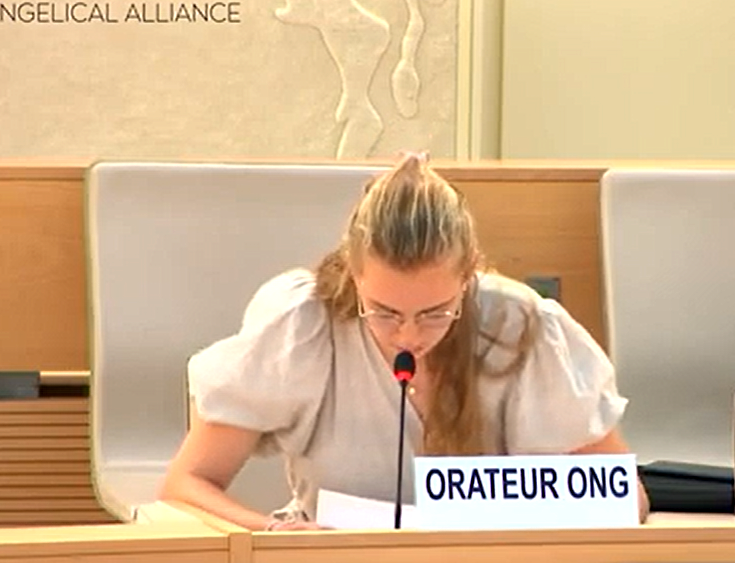On Monday (June 30) the Christian group called on Italy to broaden religious freedom at the United Nations Human Rights Council (HRC) to protect the broader church sect.
The World Evangelical Alliance (WEA) and the Italian Evangelical Alliance (AEE) called for the creation of religious freedom laws in a statement by WEA Representative Nadia van der Sar at the HRC’s 59th session in Geneva, Switzerland.
“We are calling on the Italian government to establish a religious freedom law that grants national agreements with religious communities that do not discriminate against religious minorities and that demand and await recognition,” Van der Sal said on behalf of WEA and AEE.
The two evangelical alliances said current regulations would make it difficult for non-Catholic groups to establish places of worship.
“In June 2024, the Caths court overturned two previous legal decisions in favour of the Rome Horn Cu Evangelical Church, establishing that the church building is not a place of worship as there is no altar, candles or statues. “The church is denied tax-free status and is required to pay taxes on a commercial basis.”
One Pentecostal church has been searching for a place of worship from the city of Albano Radiale since 1997, she said. After 15 years of waiting for response, the church purchased the land and applied for a change in “intended use” to build the church building. According to Van der Sar, local governments continue to ignore the demands despite confirming an agreement with the change.
The evangelical alliance pointed out that migration and globalization meant that Italian religious communities were more diverse, and that governments needed to recognize the general need for a clearer religious freedom law. In particular, the national zoning regulations mean opening new places of worship and maintaining the building for such use.
The plea came amid the HRC’s adoption of the Universal Regular Review (UPR) in Italy. The UPR is a peer review by the human rights HRC of UN member states and occurs every four and a half years.
In a statement by Van der Saar, the evangelical alliance welcomed Italy’s openness to participate constructively in the UPR and “supporting recommendations related to the rights of religious and ethnic minorities.” Both evangelical alliances urged the government to allow state agreements with religious communities in accordance with requests that require approval.
Italy was submitted to its final UPR, called “Cycle Four” in October, and the review noted that Italy was taking “specific measures” for its national action plan to combat racism, xenophobia and intolerance, and was fighting the immigrant community that “promotes intercultural understanding and diversity” with immigrant communities, including Afro-Deathhanser.
In anticipation of the ongoing 59th session of the HRC (June 16 to July 11), an update by the UPW Working Group on March 18 listed many recommendations on Italy that other countries have given further human rights.
The points raised covered a range of issues, including women, children, journalists, and immigrant rights, but the state made poor references to religious rights in multiple recommendations.
The United States called for the abolition of Italian honor and criminal penalties for ASP, while Pakistan “sought the enactment and enforcement of laws to counter racism, hate speech, hatred and incitement of violence against religious minorities.
Pakistan ranked 8th in the 2025 World Watchlist 2025 of the Christian Assistance Group in the country where it is the most difficult to be a Christian.
Bangladesh also encouraged Italy to “exclude all forms of discrimination against religious and ethnic minorities and all forms of discrimination against immigration, and to continue its efforts to ensure equal opportunities to enjoy economic, social and cultural rights.
Cameroon, although not specifically mentioning religion, has asked Italy to “enhance the protection of minority rights by ensuring the full integration of these communities in the decision-making process that involves them.”
In many countries, Italy called for the establishment of independent national human rights institutions in accordance with Parisian principles.
